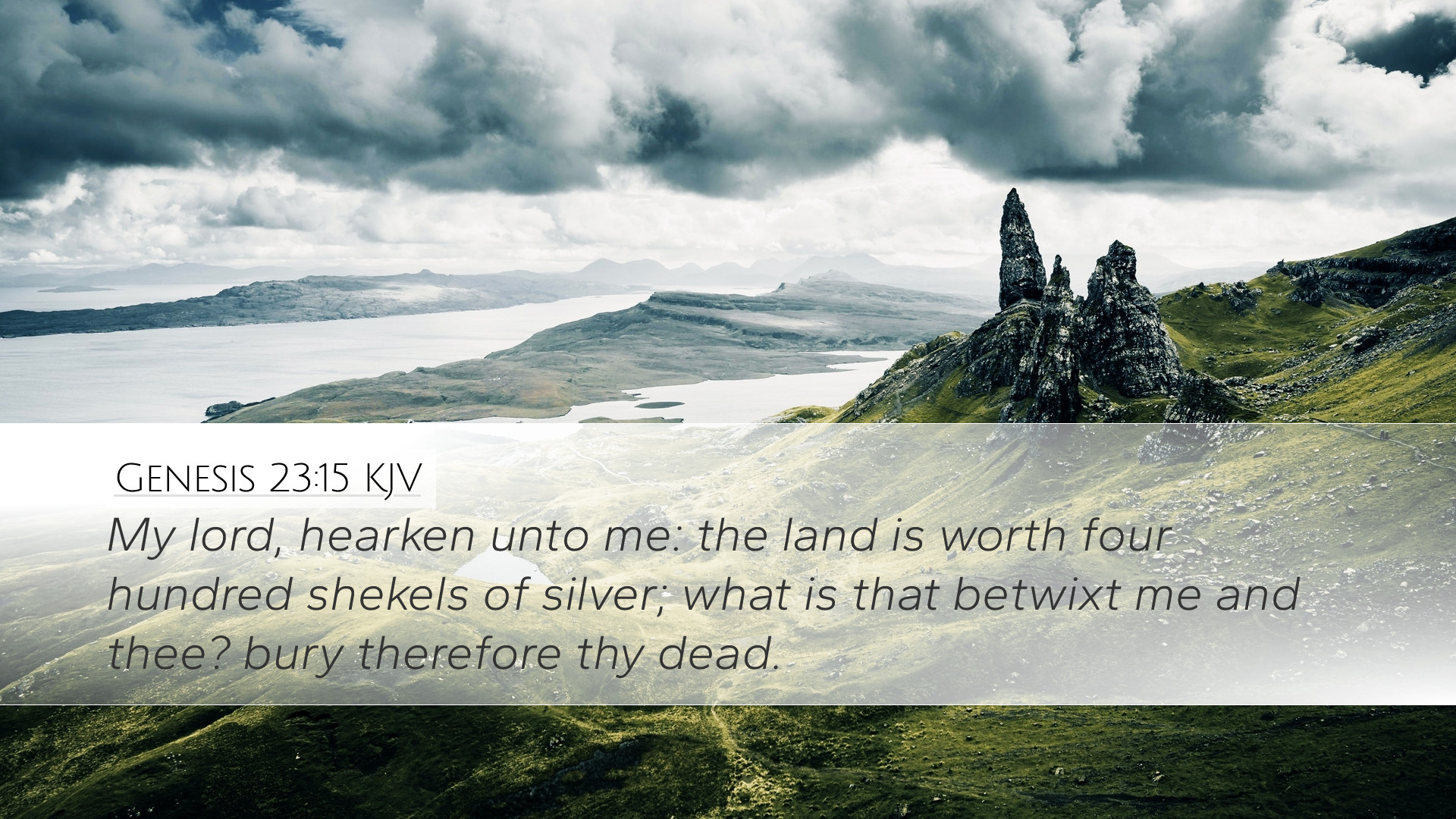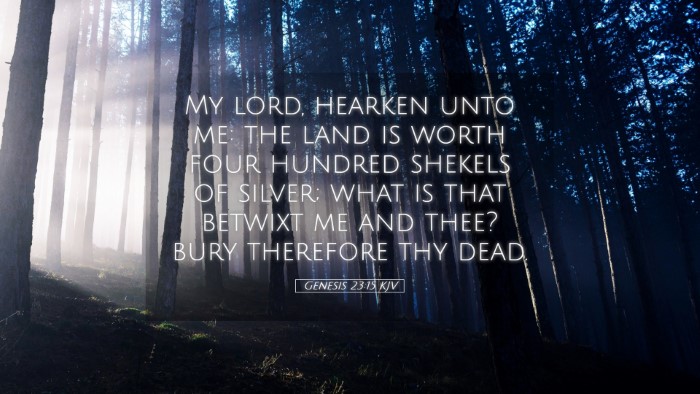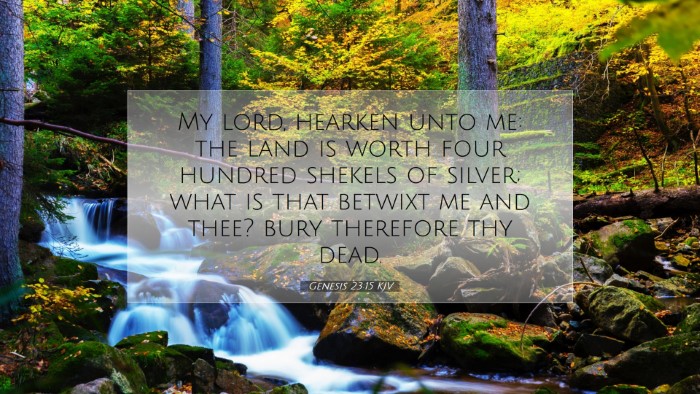Commentary on Genesis 23:15
Text of Genesis 23:15 (KJV): "My lord, hearken unto me: the land is worth four hundred shekels of silver; what is that betwixt me and thee? bury therefore thy dead."
Introduction
Genesis 23:15 is a passage that reflects the negotiations for the burial site of Sarah, Abraham's wife. It reveals significant cultural, theological, and practical insights into the customs of the ancient Near East regarding land ownership and burial practices. This commentary synthesizes insights from several public domain sources.
Cultural Context
This verse occurs in the context of Abraham’s grief over Sarah's death and his desire to provide her with a proper burial. Matthew Henry notes that Abraham was a man of faith, expecting a future resurrection, but still recognizing the importance of honoring the dead in his present circumstances.
Land Acquisition
In ancient times, land was seen not merely as property but as an inheritance from God and a part of one’s identity. Albert Barnes emphasizes that the transaction signifies Abraham's integration into the land promised to him, foreshadowing the future possession of Canaan by his descendants.
The Value of Silver
The price stated, "four hundred shekels of silver," indicates a significant sum, suggesting that Abraham was treating the negotiation with respect and dignity. Adam Clarke interprets this transaction as a desire to acquire a permanent burial site rather than using a temporary solution. The monetary exchange emphasizes the seriousness of his intent and his commitment to becoming a landowner, despite being a foreigner.
Negotiation Process
Abraham’s respectful negotiation with the Hittites showcases the importance of diplomacy in ancient customs. As noted by Henry, the phrasing "what is that betwixt me and thee?" indicates a humble and genuine approach to the negotiation, marking Abraham as a man of integrity.
Theological Significance
From a theological perspective, this passage highlights several critical themes:
- Faith and Provision: Abraham's willingness to pay for the land illustrates his faith in God's promises about the future of his descendants, as he acts on his belief of future possession.
- Respect for the Deceased: The act of providing a burial place for Sarah reflects the biblical view of the body and the dignity attributed to humans created in God’s image.
- God's Covenant: The transaction symbolizes God's enduring covenant with Abraham and his descendants, ensuring that even in death, there is a "place" that signifies belonging to God's promised plan.
Reflection for Pastors and Theologians
Pastors may draw from this narrative practical lessons regarding how to treat the deceased with decorum and respect, reflecting on how we honor those we have lost. The intersection of faith and practice is present here; even as believers, we must navigate the realities of life, including grief and land ownership.
Application in Ministry
This passage also illuminates the importance of community engagement. Abraham's dealings with the Hittites exemplify how believers are called to interact with the world in a way that respects cultural norms while upholding their faith principles. The application of negotiation and respect in funerary practices and land ownership remains relevant in modern ministry.
Concluding Thoughts
Genesis 23:15 serves as a valuable text for understanding Abraham’s personal character, his cultural context, and the early establishment of ownership in the land. As Henry concludes, Abraham's faith influenced his actions, showing that those who believe must also act with integrity and respect towards others. This narrative invites contemporary readers to reflect on their own interactions with death, grief, and the promise of future hope.
References for Further Study
- Matthew Henry's Commentary
- Albert Barnes' Notes on the Bible
- Adam Clarke's Commentary


